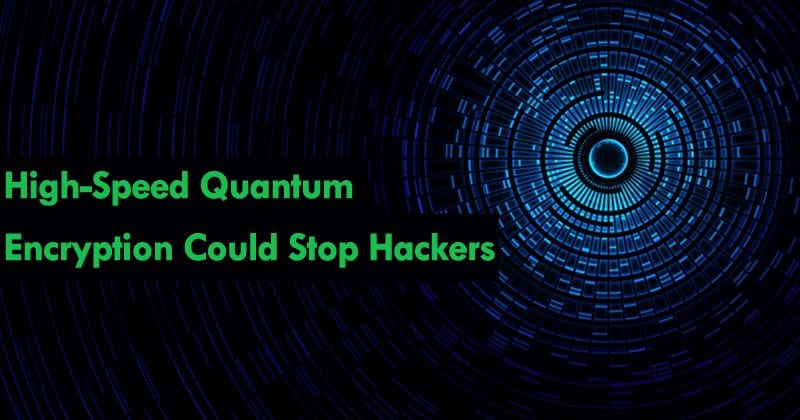Recently, the researchers in the United States have developed a high-speed encryption system that prevents hackers from breaking into computer systems and these quantum encryption techniques could be widely used.
High-Speed Quantum Encryption Could Stop Hackers
Researchers in the United States have developed a high-speed encryption system that prevents hackers from breaking into computer systems and these quantum encryption techniques could be widely used.
According to the new study published online this week in Science Advances, the system can create and distribute encryption codes at rates of megabits per second, between five and ten times faster than current methods, and at the same rate as the current of the Internet when operating several systems in parallel.
Researchers at Duke University, Ohio State University and the Oak Ridge National Laboratory demonstrated that the technique is effective against common attacks, even in the face of equipment failures that could open loopholes.
“We may have quantum computing in operation that can begin to overcome existing cryptographic codes in the near future,” said Daniel Gauthier, a physics professor at Ohio State University. “We will really have to think a lot about the different techniques we could use to protect the Internet.”
According to the research, the recent advances in quantum computing may soon allow hackers to gain access to machines so powerful that they break the most secure Internet codes.
For the quantum system to work, both parties require access to the same key and must be kept secret. Research on the distribution of quantum keys guarantees this through quantum mechanics, which when measuring small amounts of matter as electrons or photons automatically modifies their properties, to exchange keys that immediately alert both parties to the existence of a risk to safety.
Although the distribution of quantum keys was theoretically planned for the first time in 1984 and was implemented shortly thereafter, technologies to support widespread use are barely coming online.
But Nurul Taimur Islam, a physics student at Duke, explained that the problem with many of these systems is that they can only transmit keys at relatively low rates, from tens to hundreds of kilobits per second, which is too slow for practical use on the Internet.
“With such speed, quantum encryption systems cannot support some basic daily tasks, such as a phone call or an encrypted video call,” said Islam.
Like many quantum key distribution systems, the key transmitter uses a weakened laser to encrypt information or individual photons of light but finds a way to pack more information into each photon, which speeds up the technique.
By adjusting the moment at which the photon is released and the property of the photon called phase, your system can encrypt two bits of information per photon and not one.
This trick, along with the high-speed detectors developed by Clinton Cahall, a student of electrical and computer engineering, and Jungsang Kim, a professor of electrical and computer engineering at Duke, empowers his system to transmit keys between five and ten times more than other methods.
In a perfect world, the distribution of quantum keys would be perfectly safe. Any attempt to hack the exchange of keys would cause errors in the transmission that would be easily detectable by the receiver.
But in the real-world implementation of the quantum key distribution requires imperfect equipment and such imperfections could open loopholes that hackers could take advantage of.
So, what do you think about this? Simply share your views and thoughts in the comment section below.



